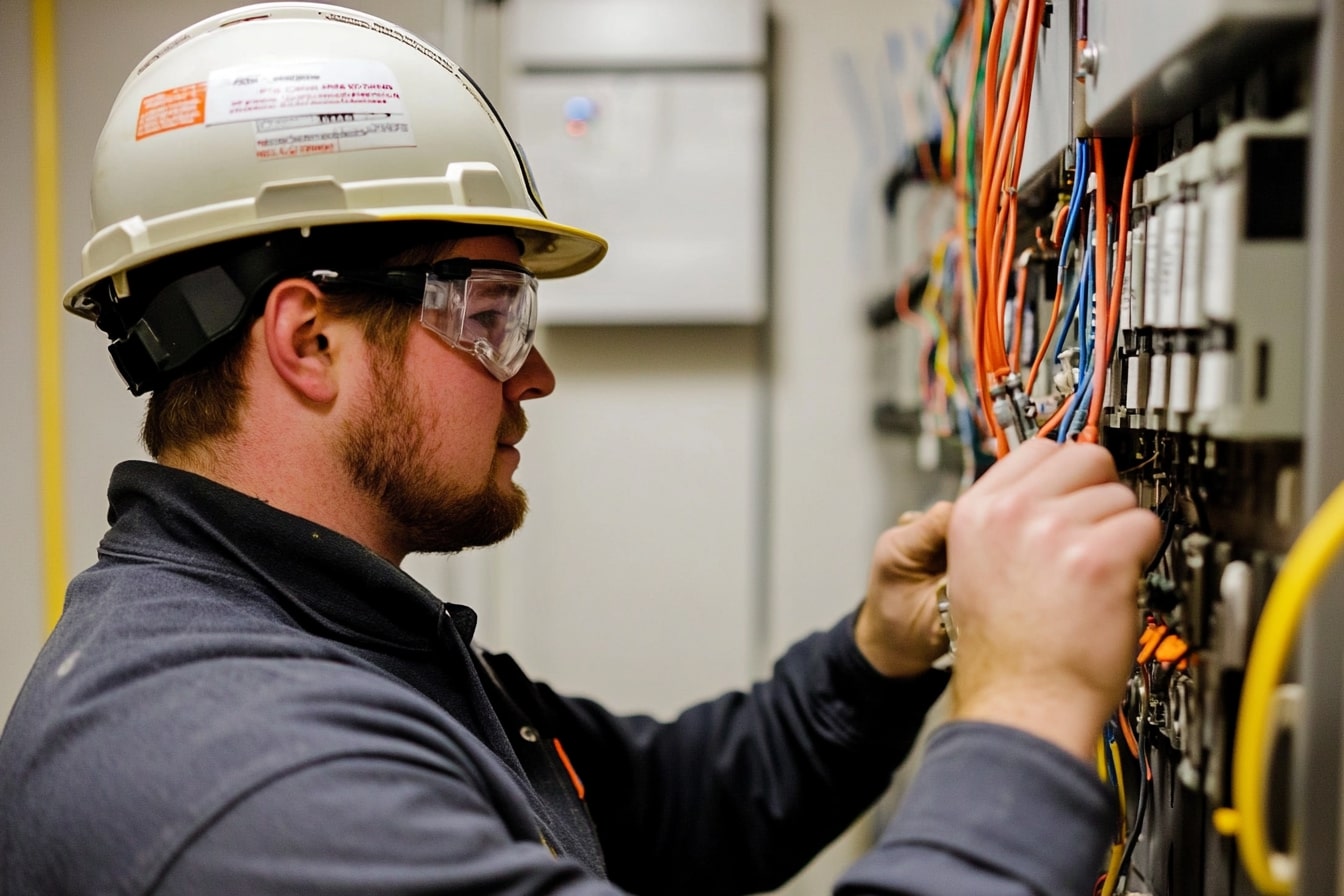Electrician jobs in the United States offer stable income and diverse opportunities
In the United States, electricians are a high-demand and stable profession that involves installing, maintaining, and repairing electrical systems. Electricians work in a variety of environments and can work on construction sites, residential areas, or industrial sites. This career not only provides a stable income, but also allows workers to use their skills in a variety of industries, including construction, industrial, and residential electrical installation.

What Does an Electrician Do?
Electricians are the unsung heroes of our modern world, ensuring that our homes, businesses, and industries have safe and reliable electrical systems. Their responsibilities range from installing and maintaining electrical wiring to troubleshooting complex electrical issues. Electricians work on various projects, from residential renovations to large-scale industrial installations, making each day unique and challenging.
What Are the Career Prospects for Electricians?
The future looks bright for those considering a career as an electrician. With the growing reliance on technology and the push towards renewable energy sources, the demand for skilled electricians is expected to remain strong. The Bureau of Labor Statistics projects a 7% growth in electrician jobs from 2021 to 2031, which is about as fast as the average for all occupations. This steady growth ensures that qualified electricians will have ample job opportunities in the coming years.
What Are the Salary Benefits of Being an Electrician?
One of the most attractive aspects of pursuing a career as an electrician is the potential for excellent compensation. As of May 2021, the median annual wage for electricians was $60,040, with the top 10% earning more than $99,800. Factors such as experience, specialization, and location can significantly impact an electrician’s earning potential. Additionally, many electricians enjoy benefits such as health insurance, retirement plans, and paid time off, making it a financially rewarding career choice.
What Are the Job Requirements to Become an Electrician?
Becoming an electrician requires a combination of education, training, and hands-on experience. Most electricians start their careers through apprenticeship programs, which typically last 4-5 years. These programs combine classroom instruction with on-the-job training, providing a comprehensive understanding of electrical theory, safety practices, and practical skills. To become a licensed electrician, candidates must complete their apprenticeship and pass a state licensing exam. Continuing education is often required to maintain licensure and stay current with evolving technologies and safety standards.
The path to becoming an electrician offers numerous opportunities for growth and specialization. Some electricians choose to focus on residential work, while others may specialize in commercial or industrial settings. There’s also a growing demand for electricians with expertise in renewable energy systems, such as solar panel installation and maintenance. Additionally, experienced electricians can advance to supervisory roles, start their own businesses, or become electrical inspectors.
How Can You Find Electrician Jobs in Your Area?
Finding electrician jobs in your area has never been easier, thanks to various resources available both online and offline. Start by checking job boards and career websites that specialize in trades and construction jobs. Websites like Indeed, ZipRecruiter, and Glassdoor often list numerous electrician positions across different locations and specialties. Don’t overlook the power of professional networking; joining local trade associations or unions can provide valuable connections and job leads. Additionally, many electrical contractors and construction companies advertise job openings on their websites or social media platforms, so it’s worth following companies you’re interested in working for.
| Specialization | Average Salary Range | Key Skills Required |
|---|---|---|
| Residential Electrician | $40,000 - $70,000 | Wiring, troubleshooting, customer service |
| Commercial Electrician | $50,000 - $85,000 | Blueprint reading, large-scale installations |
| Industrial Electrician | $60,000 - $100,000 | PLC programming, motor controls |
| Solar Panel Installer | $45,000 - $80,000 | Renewable energy systems, roofing |
| Maintenance Electrician | $45,000 - $75,000 | Preventive maintenance, quick problem-solving |
As the electrical industry continues to evolve, electricians play a crucial role in shaping our technological future. From ensuring the safety of our electrical systems to contributing to the growth of sustainable energy solutions, electricians are at the heart of innovation and progress. Whether you’re considering a career change or looking to advance in the field, the world of electrician jobs offers a wealth of opportunities for those willing to put in the hard work and dedication required to succeed in this dynamic profession.
The shared information of this article is up-to-date as of the publishing date. For more up-to-date information, please conduct your own research.




